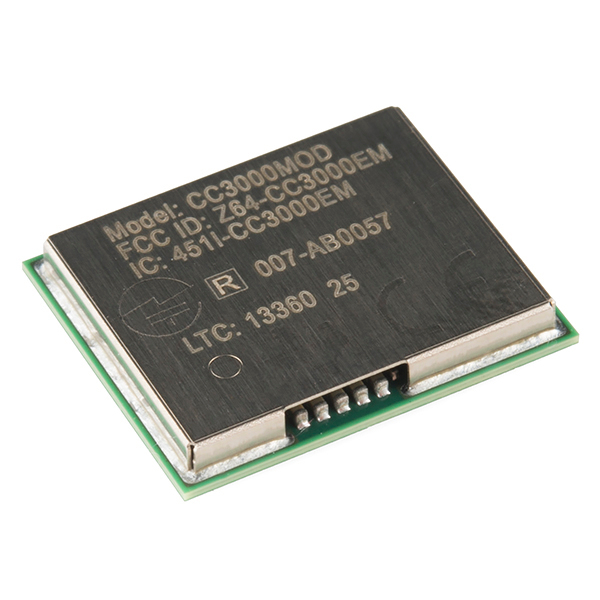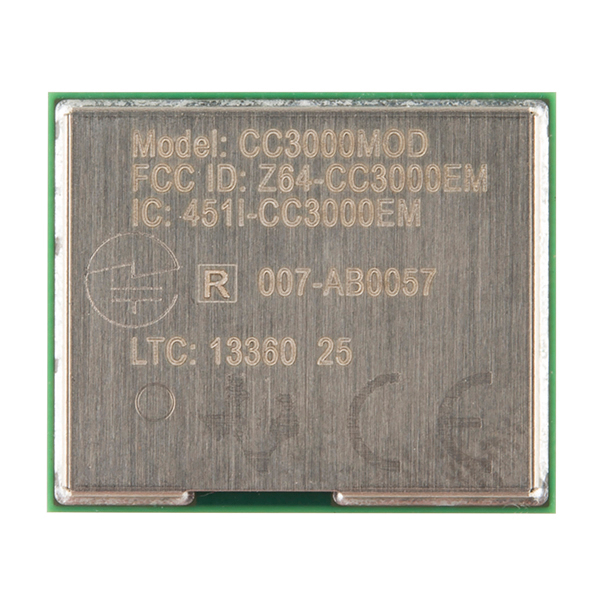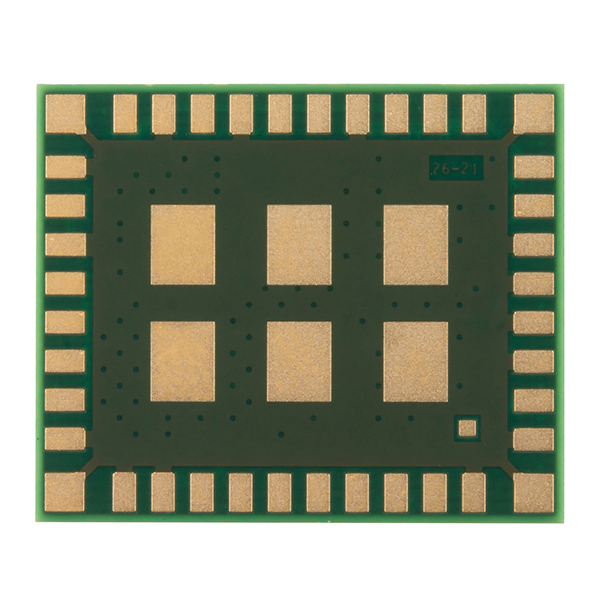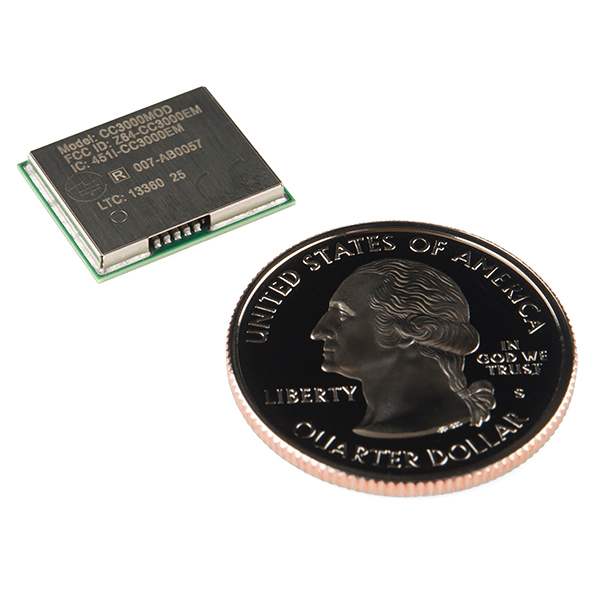WiFi SMD Module - CC3000
The CC3000 from TI (Texas Instruments) is a self-contained wireless network processor that makes incorporating internet connectivity into your project simple. Instead of the more standard UART communication method, the CC3000 module utilizes an SPI interface allowing you, the user, to control the flow of data as you please. What makes the CC3000 unique is its ability to associate to a WiFi access point using a cell phone app in the Texas Instruments process called SmartConfig. This is a great module if you need to add wireless networking to your project!
The CC3000 is an IEEE 802.11 b/g compliant WiFi module with an embedded IPv4 TCP/IP stack with an SPI host interface at 16MHz. Each CC3000 requires a power supply of 2.9V - 4.8V with a max current rating of 92mA and is capable of connecting to WEP, WPA/WPA2 WiFi security Modes.
- Supply Voltage: 2.9V - 4.8V
- Host Interface: SPI @ 16MHZ
- Throughput (TCP): ~4Mbps
- IEEE 802.11 b/g Compliant
- WEP, WPA/WPA2 (AES and TKIP - Personal) Security Modes
- FCC, IC, CE, and TELEC Certified
- 16.3mm x 13.5mm x 2mm
WiFi SMD Module - CC3000 Product Help and Resources
Core Skill: Soldering
This skill defines how difficult the soldering is on a particular product. It might be a couple simple solder joints, or require special reflow tools.
Skill Level: Competent - You will encounter surface mount components and basic SMD soldering techniques are required.
See all skill levels
Core Skill: Programming
If a board needs code or communicates somehow, you're going to need to know how to program or interface with it. The programming skill is all about communication and code.
Skill Level: Competent - The toolchain for programming is a bit more complex and will examples may not be explicitly provided for you. You will be required to have a fundamental knowledge of programming and be required to provide your own code. You may need to modify existing libraries or code to work with your specific hardware. Sensor and hardware interfaces will be SPI or I2C.
See all skill levels
Core Skill: Electrical Prototyping
If it requires power, you need to know how much, what all the pins do, and how to hook it up. You may need to reference datasheets, schematics, and know the ins and outs of electronics.
Skill Level: Competent - You will be required to reference a datasheet or schematic to know how to use a component. Your knowledge of a datasheet will only require basic features like power requirements, pinouts, or communications type. Also, you may need a power supply that?s greater than 12V or more than 1A worth of current.
See all skill levels
Comments
Looking for answers to technical questions?
We welcome your comments and suggestions below. However, if you are looking for solutions to technical questions please see our Technical Assistance page.
Customer Reviews
No reviews yet.





Any plans on having fritzing parts for this?
We have a Fritzing part for the CC3000 WiFi Breakout. It can be found on the CC3000 github page. Are you wanting the Fritizing part for the Breakout or just the CC3000? :)
Just the CC3000 module, so we can include it in our own boards.
Added WiFi SMD Module - CC3000 to the SparkFun Fritzing Repo under Parts. Hope that helps! Side note: If you are interested in learning how to make Fritzing parts, we have a Fritzing tutorial and Fritzing has a great making custom parts section too.
Amazing info, thank you very much for all of this!!
I can get a bug in for the request.
Yay! Only 50% more expensive than from DigiKey!
I see the same price (in small quantities).
If I included this module on a reworked Arduino Eagle file, would it keep the FCC, IC and TELEC certifications, or is it considered a new circuit?
I do believe that aslong as you dont go and tamper with the module itself the certifications remain intact. afterall the module itself is certified. would be silly to sell a certified module that would lose said certification the moment you install it in something as one is expected.
So yeah it would keep its certifications if installed on a circuit you designed yourself.